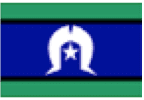The rate of Centrelink income support for a couple is less than the rate for two individuals. This is based on the premise that a couple living together can pool resources and expenses, and therefore have lower living costs compared to two single people.
The social security system assumes that people in relationships share income and assets. There is little discretion for the reality that, for many couples, this is simply not the case.
Member of a couple provisions
Section 4 of the Social Security Act 1991 defines what it means to be a member of a couple. Usually Centrelink will consider a person a member of a couple if they are legally married, or in a registered relationship or in a de facto relationship.
The member of a couple provisions allows little discretion to consider the gendered power imbalance that exists in many relationships and this is especially true in cases of family violence, where we know that women are often denied access to money and resources. They may actually have no access to money or assets, despite being in a relationship.
Section 24 of the Social Security Act 1991 provides decision-makers with limited discretion to treat someone as not being a member of a couple, even if they meet the definition of a couple. Centrelink will usually only treat a person as not a member of a couple if there are ‘special reasons’, including an inability to pool financial resources and financial difficulty.
The discretion to treat a person as not a member of a couple is an important safeguard for people experiencing family violence.
Family violence and updates to the Social Security Guide
When family violence is considered in the context of section 24, it can allow a person to access a single rate of payment despite being in a relationship, with their rate of payment unaffected by their partner’s income and assets.
SSRV has supported moves for family violence to be highlighted as a reason to exercise such discretion in the updated text of the Social Security Guide (SSG).
The SSG provides guidance about the application of social security law for original decision-makers, review officers, and Administrative Appeals Tribunal members in relation to the discretion not to treat a person as a member of a couple.
This year, we anticipate amendments will be made to the SSG to make references to family violence more explicit and to ensure that family violence is properly considered by decision-makers as a factor in making a member of a couple assessment. These amendments are yet to be released, keep an eye on our newsletter for further details of the changes when they occur.
We hope these changes will work to support family violence survivors who are reliant on social security, by enabling family violence to be properly considered in the decision-making process.
SSRV believes responses to the endemic levels of family violence in Australia must take into account the significant intersections between family violence and the social security system.
Access to income support provides a vital safety net for women living with or escaping family violence. Income security is crucial to safety at times of greatest vulnerability, and social security support is often an essential resource for women to re-establish themselves as they rebuild their lives.
Perpetrators may also abuse the social security system to exert power and control over victim-survivors, which is why it is essential that the system is sufficiently sensitive to the prevalence of family violence and be flexible enough to respond to it in individual cases.
Reforms to the social security system have the potential to support many victim-survivors of violence, increasing their capacity to escape abuse and its ongoing effects.




